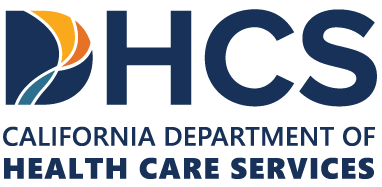Alcohol-related liver damage is one of the most aggravating consequences of prolonged alcohol abuse, affecting millions of people worldwide. The liver has a remarkable capacity for regeneration, but healing requires commitment, medical supervision, and sweeping lifestyle changes.
This page examines evidence-based strategies for liver recovery, exploring the stages of alcohol-induced liver damage, practical healing approaches, and the expected timeline for restoration. By becoming aware of these principles, individuals can take meaningful steps toward reversing alcohol’s harmful effects on this vital organ.
Alcohol-Related Liver Damage
The liver processes roughly 90% of alcohol consumed, breaking it down into acetaldehyde, which is further metabolized into less harmful substances, such as acetate. When alcohol consumption exceeds the liver’s processing capacity of one standard drink per hour, toxic byproducts accumulate and cause progressive damage.
Alcohol-induced liver disease typically progresses through three distinct stages:
- Alcoholic fatty liver disease, also known as steatotic liver disease, is the earliest and most reversible stage, characterized by fat accumulation within liver cells. This condition can occur in anyone who consumes lots of alcohol, but it often presents without apparent symptoms.
- Alcoholic hepatitis follows as the second stage, involving inflammation and liver cell death. This condition can range from mild to severe, with symptoms that include jaundice, abdominal pain, and fatigue.
- Cirrhosis is the most advanced stage, associated with irreversible scarring that replaces healthy liver tissue with fibrous scar tissue.
Research indicates that the liver can begin healing within days of alcohol cessation, with fatty liver disease potentially reversing within weeks to months of discontinuation. That said, more advanced damage requires more extended recovery periods and may involve permanent changes.
Immediate Steps for Liver Recovery
Complete elimination of alcohol is the primary intervention for liver healing triggered by heavy drinking. Even moderate alcohol consumption can impede recovery and worsen existing symptoms.
Medical supervision during withdrawal helps manage potentially dangerous symptoms and provides robust support during this challenging initial phase of recovery. Medical detox programs streamline withdrawal and monitor for complications that could affect liver function. Professional support dramatically improves success rates and reduces health risks during early recovery from alcohol abuse.
Proper hydration supports liver function and helps flush toxins from the system. Drinking adequate water assists the liver in processing waste products more efficiently while preventing dehydration-related complications. Most healthy adults require 8 to 10 glasses of water daily, although individual needs may vary slightly.
Nutritional rehabilitation plays a central role in liver healing. Alcohol abuse often leads to malnutrition, depleting essential vitamins and minerals necessary for liver function. Healthcare providers frequently recommend nutritional assessments to identify specific deficiencies requiring targeted supplementation.
Dietary Interventions for Liver Health
A Mediterranean-style diet provides optimal nutrition for liver recovery. This eating pattern is based on whole foods, healthy fats, lean proteins, and abundant vegetables while limiting processed foods and added sugars. Research demonstrates that this dietary approach reduces liver inflammation and supports cellular repair processes.
Incorporating specific nutrients accelerates liver healing. Antioxidants found in colorful fruits and vegetables combat oxidative stress provoked by alcohol metabolism. Berries, leafy greens, and citrus fruits provide vitamin C and flavonoids that support liver detoxification pathways.
High-quality protein intake supports liver cell regeneration. Lean sources such as fish, poultry, eggs, and legumes provide amino acids necessary for rebuilding damaged tissue. However, individuals with advanced liver disease may require protein restrictions, making medical supervision integral to dietary planning.
Omega-3 fatty acids have anti-inflammatory properties that benefit liver health. Fatty fish like salmon, sardines, and mackerel provide these essential fats, while plant-based sources include walnuts, flaxseeds, and chia seeds. Studies suggest that omega-3 supplementation may reduce liver fat accumulation and inflammation.
Complex carbohydrates from whole grains, vegetables, and fruits provide sustained energy while supporting stable blood sugar levels. These foods also supply B vitamins that aid liver metabolism and energy production. Avoiding refined sugars and processed carbs helps prevent additional liver stress.
Medical Interventions and Monitoring
Regular medical monitoring ensures optimal recovery progress and identifies potential complications early. Healthcare providers typically assess liver function through blood tests measuring enzymes, bilirubin levels, and protein synthesis markers. These tests help track healing progress and guide treatment adjustments.
Medication management requires careful consideration during liver recovery. Many common medications, including acetaminophen, can stress the healing liver. Healthcare professionals review all drugs and supplements to ensure safety and prevent additional liver damage during recovery.
Vaccination against hepatitis A and B provides extra protection for individuals with compromised liver function. These vaccines help prevent additional liver infections that could complicate recovery or prompt further damage. Most healthcare providers recommend these vaccinations early in the recovery process.
Some people may benefit from prescription medications that support liver health. Milk thistle extract shows promise in supporting liver cell regeneration, although scientific evidence remains mixed. Other supplements like N-acetylcysteine may help replenish glutathione levels, supporting natural detoxification processes.
Lifestyle Modifications for Optimal Healing
Regular physical activity enhances liver function and overall recovery. Exercise improves circulation, helping deliver nutrients to liver cells while removing waste products more efficiently. Starting with gentle activities like walking and gradually increasing intensity supports sustainable recovery progress.
Research shows that moderate exercise reduces liver fat accumulation and inflammation. A combination of aerobic exercise and resistance training provides powerful benefits for liver health. Most experts recommend at least 150 minutes of moderate-intensity exercise weekly, although individuals should consult healthcare providers before beginning exercise programs.
Stress management impacts liver healing potential. Chronic stress elevates cortisol levels, which can impair liver function and slow recovery. Effective stress reduction techniques include meditation, deep breathing exercises, yoga, and counseling support.
Sleep quality directly affects liver regeneration processes. The liver performs many of its repair and detoxification functions during sleep, making adequate rest essential for optimal healing. Most adults need 7 to 9 hours of quality sleep nightly for proper liver recovery.
Environmental Factors and Toxin Reduction
Minimizing exposure to environmental toxins reduces liver burden during recovery. Common household chemicals, pesticides, and air pollutants require liver processing, slowing healing progress. Using natural cleaning products and eating organic foods when possible supports liver recovery efforts.
Smoking discontinuation accelerates liver healing and improves overall health outcomes. Tobacco smoke contains many toxins that stress the liver and impair its regenerative capacity. Healthcare providers can recommend effective smoking cessation strategies and support resources.
Avoiding unnecessary medications and supplements prevents additional liver stress. Over-the-counter pain relievers, herbal supplements, and vitamins can impact liver function when misused. Consult healthcare providers before taking any new substances during liver recovery.
Monitoring Recovery Progress
Tracking physical symptoms helps assess healing progress. Early signs of liver recovery may include increased energy levels, improved appetite, and better sleep quality. More advanced healing indicators include clearer skin, reduced abdominal discomfort, and improved cognitive function.
Laboratory markers provide objective measures of liver recovery. Improvements in liver enzyme levels, bilirubin, and albumin production indicate successful healing progress. Healthcare providers typically monitor these markers regularly during the first year of recovery.
Imaging studies such as ultrasounds or CT scans may help assess structural improvements in liver tissue. These tests can show reductions in liver fat content and improvements in overall liver architecture as healing progresses.
The timeline for liver recovery varies widely from person to person, depending on the extent of damage, overall health status, and adherence to recovery protocols. Early-stage fatty liver disease may improve within weeks, while more advanced damage requires months to years for optimal healing. Consistent medical supervision and lifestyle modifications maximize recovery potential and improve long-term outcomes.
Start Addressing Alcohol Abuse at The Retreat South Coast
If you have been abusing alcohol, we can help you address alcohol-related liver damage, dependence, and addiction at The Retreat South Coast.
Begin your recovery with supervised detoxification to streamline alcohol withdrawal and mitigate complications. Next, transition to ongoing treatment at an appropriate level of intensity for the severity of your addiction and your circumstances. We offer evidence-based interventions across the full continuum of care.Begin your whole-body healing from alcohol abuse today by calling admissions at (949) 612-4789.









